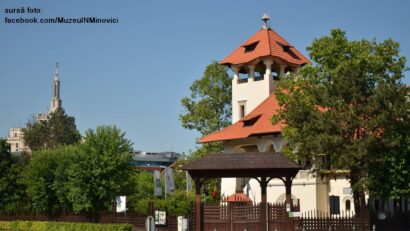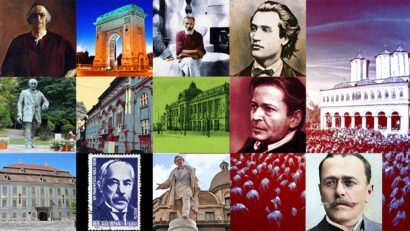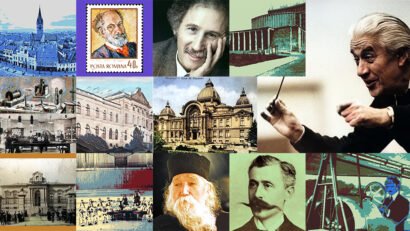Political prisoners in Ploiesti between 1948 and 1964
Unfounded accusations, abusive arrests, no official indictment or trial, torture and inhumane conditions of detention.

Christine Leșcu, 02.10.2021, 14:02
About 350 political detainees, mentioned in official documents, appear in the archives of the town of Ploieşti, an important industrial and oil center, especially in the first half of the twentieth century. Most of these people were arrested, imprisoned, tried and tortured in the citys iconic buildings, which ordinary people passed by every day without suspecting anything. Starting from the history of the place, but also from the need to know the tragedies that his hometown went through, historian Lucian Vasile wrote the book “The ones we forgot. The communist repression in Ploieşti (1948 – 1964).“
The detainees presented in the book were selected based on their connection with the town of Ploiesti. At the time of their arrest they either lived in Ploiești and belonged to that community, or were investigated by the local political police and imprisoned there. But regardless of that, their tragedy is the same as that of all victims of the communist regime, a regime eager to annihilate real or imagined enemies, based on accusations that were most times invented. Historian Lucian Vasile tells us more about the political prisoners in Ploiesti: ”They were from all social categories. This seemed to me the most interesting thing because almost half of the political prisoners were from the working class or were poor or middle-class peasants, that is, exactly the categories that the regime claimed to represent. This shows, in fact, the degree of rejection or attachment of the Romanian community to the regime imposed after the Second World War. Most of the detainees were young because they were seen as the most open to doing what they were asked. They had no family obligations and no children, something that usually influences the way people respond to pressure.”
Unfounded accusations, abusive arrests, no official indictment or trial, but most of all, torture and inhumane conditions of detention have made many prison survivors reluctant to talk about what happened to them. For some of the survivors in Ploieşti, Lucian Vasile was the one who took on the writing of their story. One of the most impressive people was Martha Koppes who, in the early 1950s, had an extremely interesting meeting with the Securitate, the former political police. Lucian Vasile: ”Martha Koppes was, in my opinion, the bravest woman I met in my research. She was not the only one with an impressive story, but she had a great personality. She did not go to prison, but she came from a mixed Romanian-Dutch family, her father being an important industrialist from Ploiești. In the 1940s, while living in Bucharest with her husband, she was contacted by the Securitate and her collaboration was discussed. She was forced to collabotare, for the sake of her parents, who were already old, wanted to leave the country and had already been harassed by the political police. Martha, in particular, was supposed to keep everything a secret. She was supposed to provide information from the Dutch Embassy where she had been working for two years, but she managed to make it look like she was playing the Securitate game without actually doing it, in order to get her parents out of the country. Some unusual circumstances pushed her into the arms of the Securitate and she had to sign a very atypical commitment, which she later denied. She eventually managed to leave the country and so have her parents. Unfortunately, she could not win the whole game, as her husband remained captive in Romania and they eventually got separated because of the distance.”
Given that many of the political detainees in Ploieşti, in the first years of communism, were young people or students, they could not escape the hardest experience of that time: the re-education that started at the Pitesti penitentiary and later spread to other detention centers. The detainees were forced to torture each other, to denounce all their previous beliefs and the people close to them. This also happened in the late 1940s to some students from Ploieşti who had printed anti-communist manifestos. Lucian Vasile tells us what happened to them once they were imprisoned in Pitesti: ”Everything turns upside down so many times that you dont know what is normal and what is abnormal, who is the victim and who is the aggressor. But this is also a story of survival and trust because even in those absolutely terrible conditions the four friends still trusted each other and refused to hit each other.”
Released under a pardon decree in 1964, most of the detainees in Ploieşti and other prisons, continued to be monitored and harassed by the Securitate until the fall of the communist regime. (EE)






























